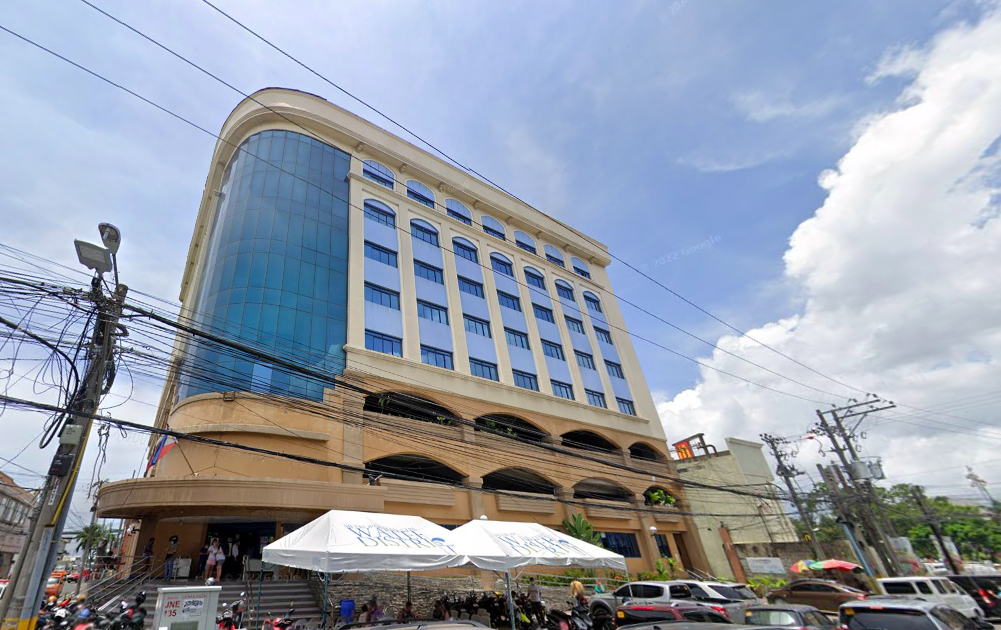
The Metropolitan Cebu Water District (MCWD) building in Magallanes St., Cebu City / via Google Maps
CEBU CITY, Philippines – More than one-third of the water production in Cebu has been relegated to wasted water.
Cebu City Mayor Michael Rama said that the Local Water Utilities Administration (LWUA) found that the non-revenue water (NRW) of the Metropolitan Cebu Water District (MCWD) had already reached 36 percent.
NRW is the amount of water in a water supply system that has zero returns due to theft, evaporation, faulty metering, poor data gathering, and pipe leakage.
“Nigawas man sa ilang (LWUA) mga findings (of discrepancies), unya karon di na motoo (sa national government)? Is there anarchy in this part of the country?” Rama asked during his ‘Ing’na Mayor’ teleradyo program over Sugboanon channel.
LWUA firm on intervention as MCWD water leakage increases
MCWD water deficit now affects 50,000 households in Metro Cebu
He said that MCWD’s failure to solve the NRW or wasted water problem affects all customers, not just those on the poverty line but also big industries.
“Dili pareha sa Cebu City, nga ang panginahanglan sa tubig, dili ra sa kabus, apil ang middle class. Unya ang nagdala sa ekonomiya, dili man daghan, pwerte pod (ang gikihahanglang tubig),” Rama added.
Meanwhile, Lawyer Joselito Thomas Baena, MCWD’s acting general manager, said during the same radio program that MCWD should take the lead in conserving water.
“How can consumers conserve water if MCWD says that 36 percent (of non-revenue water) is okay? Just imagine, 36 percent, that’s too much,” he added.
Baena emphasized that the water district’s suspended officials should fulfill their promises and start repairing the broken pipes to lessen the high rate of non-revenue water (NRW) or wasted water it has garnered over the years.
READ:
Manila Water maintains low NRW via intensified leak detection, quick response
Drought damage P4.3B; UN airs call to aid PH
However, Joey Daluz, the MCWD chair, claimed that the NRW rate is far lower than those of other water districts in the country.
He said that MCWD only has a 36 percent NRW rate while the others are in worse situations.
“Kami ang pinakaubos sa NRW. If you look at Davao and other areas, ilaha 40 percent, 50 and even 60 percent. That is not even a ground (for takeover),” Daluz added.
But Baena said the water districts in the country are only allowed to have a maximum NRW threshold of less than 20 percent of the total production.
LWUA’s resolution in 2009 ordered water districts to set a maximum acceptable NRW of 20 percent.
Baena said the Commission on Audit (COA) has already called MCWD’s attention due to its high NRW rate.
However, the water district did not address it.
COA’s report in 2022 found that MCWD lost P117.759 million in annual revenue due to its failure to address its NRW for the past three years.
In 2020, MCWD’s NRW rate was at 25.26 percent; then it rose to 29.04 percent in 2021; and reached 32.67 percent in 2022.
LWUA said that the latest wasted water rate has reached 36 percent.
Baena said that the water crisis could have been averted if MCWD addressed the issue as soon as the national government called its attention.
“They say that gamay ra ang tubig sa Cebu because we are an island. Para nako dili na ma-control nga factor because constant man na. But there are things that are within our control like the repairs sa atong leaked pipes,” he said.
However, the acting general manager admits that he cannot solve MCWD’s problems during his 90-day stay at MCWD.
He said that LWUA’s Interim Board of Directors (IBOD’s) priority is not just to investigate MCWD’s underlying issues but also to help its employees and consumers in crisis.